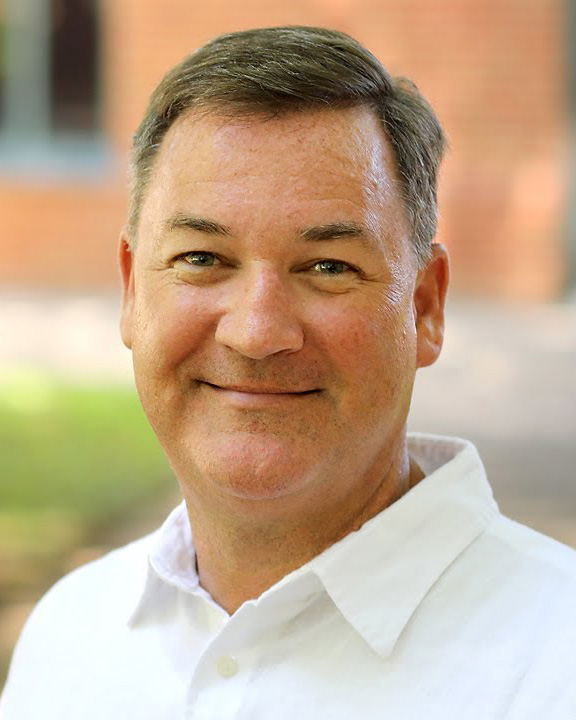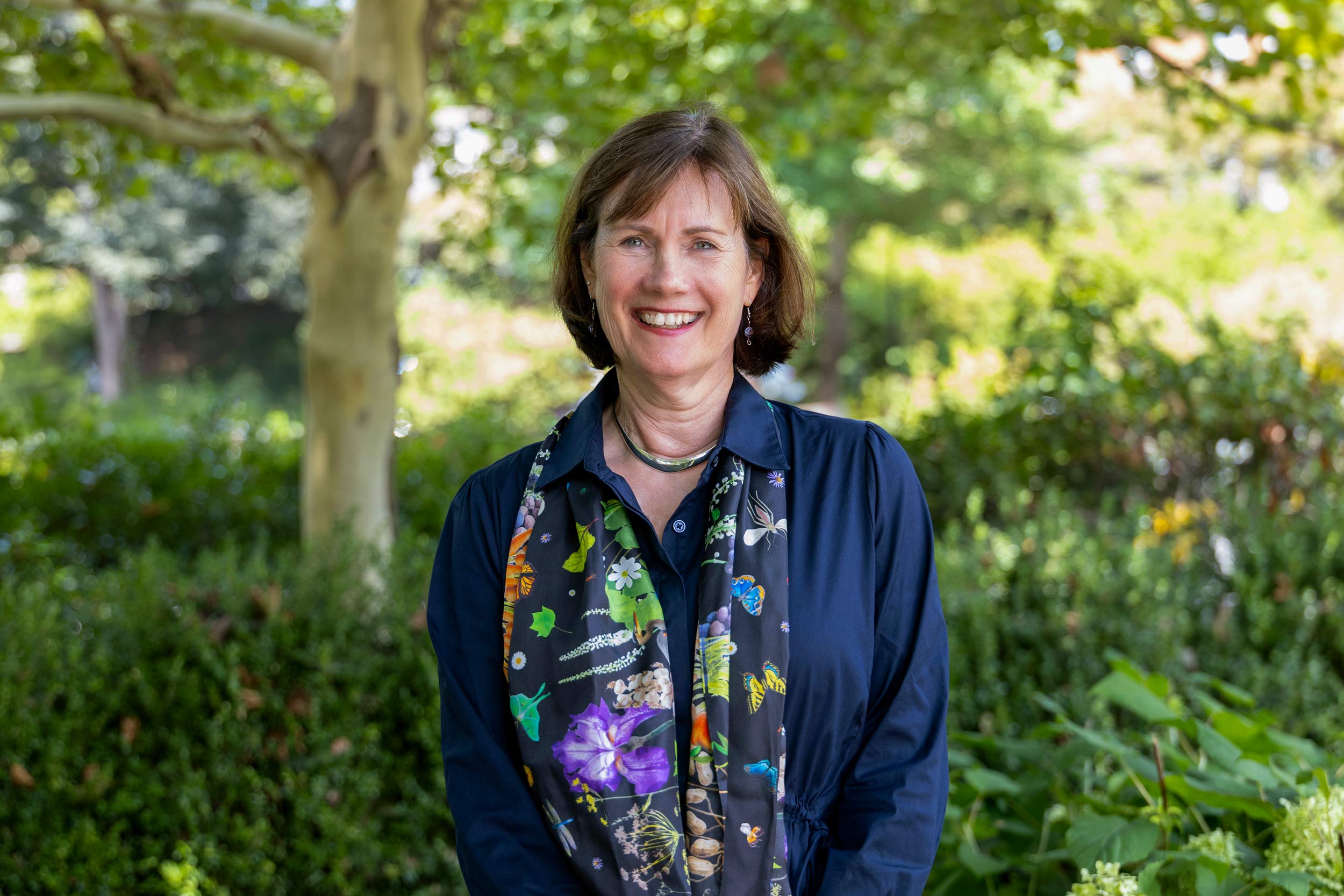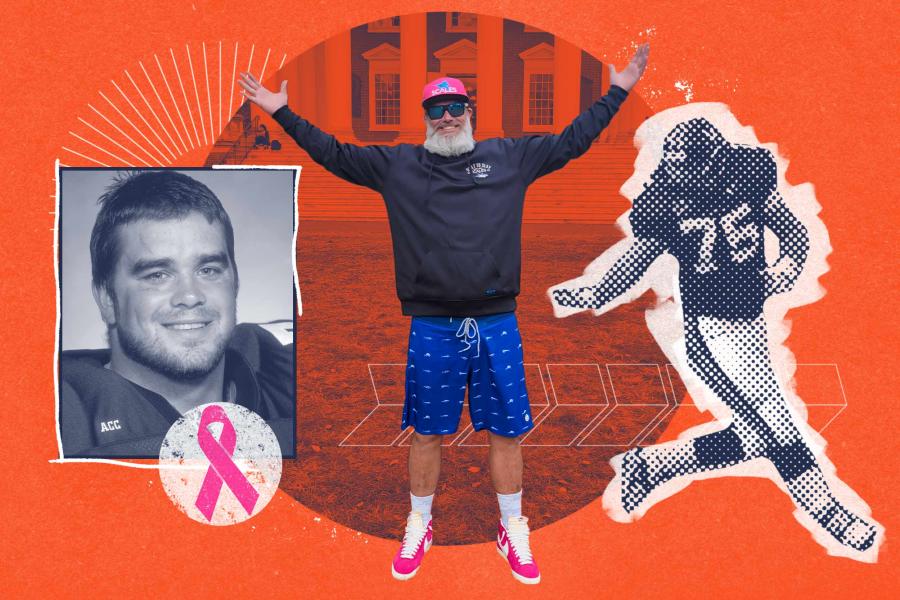Susan Harris seriously considered culinary school. That was the backup plan if her application to the University of Virginia’s School of Law didn’t work out.

Scott Ballenger is set to replace Harris as board secretary and special assistant to the president. When Ballenger was a UVA undergraduate student, he served as the board’s student member. (Law School photo)
But she was accepted and graduated in 1987. Harris then embarked on a career of service to UVA that has spanned 38 years. For the past 16 years, she has served as the secretary to the UVA Board of Visitors. Her tenure in that position concludes Aug. 15 when she transitions to a role as an adviser to the University president ahead of her planned 2026 retirement.
“The most rewarding part of service as board secretary has been getting to know these remarkable individuals – board members, student representatives and faculty representatives – as well as working across the institution,” Harris told UVA Today.
As a fresh law school graduate, Harris desired to stay in Charlottesville, but wasn’t interested in private practice. She wanted to work in public service and, since her parents were both educators, UVA seemed the natural choice.
She began her UVA career in the general counsel’s office and later became an assistant to Leonard W. Sandridge, who was UVA’s executive vice president and chief operating officer. Harris describes Sandridge, since retired, as “my mentor and friend” who “gave me incredibly exciting work that has been the most interesting and fulfilling of my time at UVA.”
That work included establishing a scholarship foundation with the government of Iceland, and traveling to Qatar when the University once considered establishing a presence there.
Harris also counts herself lucky to have worked closely with UVA President Emeritus John T. Casteen III, who died in March. She was impressed by his “curiosity about the world, his love of travel and exploration, and his deep knowledge of everything UVA. He was a dear friend.”
Harris said so many of the board’s rectors have inspired her – particularly George Martin, who she remembers for a fiery defense of the University when it was the subject of a fabricated Rolling Stone story – but she also developed a soft spot for the student representatives.
“I can say of those I have worked with as secretary; they are all exceptional people who assumed the position to give a voice to students at the board level,” Harris said. “I am very fond of every one of them and I keep in touch with a number of them.”
Harris said she will look back at her position as board secretary with a sense of pride and accomplishment.
“When I came into the position, I knew a great deal about many aspects of the University because the COO’s office had a broad portfolio. But working with the board directly gave me a new perspective on all that they contribute,” she said. “It has been a bit of a roller coaster ride, but I think that is the way it is at every university, and that’s what makes the work interesting.”
At a special meeting Monday, the board elected Scott Ballenger, an associate professor in the Law School, to replace Harris as secretary to the board and special assistant to the president. Ballenger is a double Hoo who earned his undergraduate degree in 1993 and law degree in 1996. As an undergraduate, Ballenger was an Echols Scholar and a Jefferson Scholar, lived on the Lawn, and served as the student member of the Board of Visitors.
“It’s an honor and a privilege to have a chance to serve this University that has given so much to me over the years,” Ballenger said.
After graduating from the Law School, Ballenger clerked for Supreme Court Justice Antonin Scalia and practiced for 20 years as an associate and then a partner in the Supreme Court and appellate practice of a major international law firm.
Ballenger has written dozens of merit briefs and petitions before the Supreme Court and has argued three cases before the justices.
For the past six years, he has taught courses called Civil Liberties and Class Actions and has run an appellate litigation clinic at the Law School. He also has served as an adviser to the provost on matters of free expression and free inquiry.



